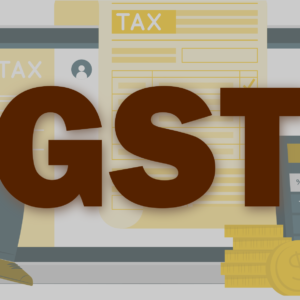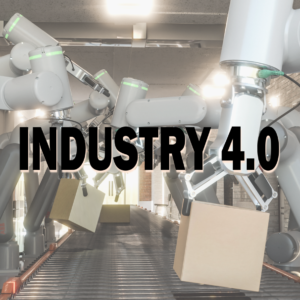
Artificial Intelligence (AI) has emerged as a transformative force in various industries, offering innovative solutions to streamline operations and enhance efficiency. Small businesses in India can particularly benefit from integrating AI into their daily work processes. Here, we will explore how AI can be utilized to simplify business processes, boost productivity, and drive growth in the Indian business landscape.
Customer Relationship Management (CRM):
Customer Relationship Management (CRM) powered by AI has revolutionized how businesses engage with their customers. AI-enhanced CRM systems go beyond traditional customer data management by leveraging algorithms to analyze customer interactions and predict future behavior. These systems enable businesses to create a holistic view of each customer, allowing for personalized communication and targeted marketing. For instance, if a customer frequently purchases a particular product, an AI-driven CRM can automatically suggest related items or promotions, enhancing the overall customer experience.
In the diverse and dynamic Indian market, where customer preferences can vary widely across regions, AI-driven CRM tools play a pivotal role. They not only help businesses understand individual customer needs but also assist in forecasting market trends.
By automating routine tasks like data entry and lead tracking, these systems allow small businesses to focus on building meaningful relationships with their customers. The result is improved customer satisfaction, loyalty, and, ultimately, sustained business growth.
Chatbots for Customer Support:
The integration of Chatbots for Customer Support has become a game-changer for small businesses in India, revolutionizing the way they interact with customers. Powered by AI, chatbots are designed to simulate human-like conversations, providing instant and personalized responses to customer queries. This technology is particularly impactful in the context of the Indian market, where businesses often face high customer volumes and diverse language preferences. Chatbots not only streamline customer support but also operate 24/7, ensuring that businesses can cater to customer inquiries beyond traditional working hours, enhancing overall customer satisfaction.
In addition to efficiency gains, AI-driven chatbots continuously improve their performance by learning from customer interactions. This adaptive learning allows them to handle increasingly complex queries over time. For small businesses in India, where providing personalized and timely customer support is crucial for building and retaining clientele, AI-powered chatbots offer a scalable and cost-effective solution. By automating routine tasks and facilitating seamless communication, businesses can focus on more strategic aspects of customer relationship management, fostering stronger connections and loyalty within a diverse and dynamic market landscape.
Data Analytics for Informed Decision-Making:
The utilization of Data Analytics for Informed Decision-Making has become a cornerstone for small businesses seeking a competitive edge. Data analytics, powered by AI, enables businesses to extract actionable insights from large datasets, facilitating more informed and strategic decision-making processes. In a market as diverse and dynamic as India, where consumer preferences and market trends vary widely across regions, AI-driven data analytics tools play a pivotal role in understanding and adapting to the intricacies of the business landscape. These tools not only provide historical insights but also forecast trends, allowing businesses to proactively respond to changes and make data-driven decisions that align with their objectives.
Furthermore, AI in data analytics enhances the efficiency and accuracy of decision-making by automating the analysis of complex datasets. Small businesses can leverage these insights to optimize operations, tailor marketing strategies, and identify areas for improvement.
In a country characterized by its fast-paced business environment, integrating AI-driven data analytics empowers small businesses to stay agile and responsive, ensuring that decisions are rooted in a comprehensive understanding of market dynamics and customer behaviors.
Automated Financial Management:
Automated Financial Management, powered by AI, has become a useful resource for businesses seeking efficiency and accuracy in their financial operations. AI-driven tools in this domain excel at automating key financial processes such as invoicing, expense tracking, and transaction categorization.
By leveraging machine learning algorithms, these tools can analyze financial data in real-time, offering businesses invaluable insights into their cash flow, spending patterns, and financial health. This not only saves time for finance teams but also significantly reduces the likelihood of human errors in financial reporting.
In the context of the Indian business landscape, where resource optimization and financial transparency are paramount, Automated Financial Management is a strategic asset. Small businesses can benefit from the precision and reliability that AI brings to financial operations, ensuring compliance, facilitating informed decision-making, and ultimately contributing to the overall financial stability of the business.
As technology continues to advance, integrating AI into financial management processes becomes increasingly accessible and indispensable for small businesses looking to navigate the complexities of the Indian market.
Human Resources and Recruitment:
AI has significantly transformed human resources (HR) and recruitment processes for any business. AI-powered tools are employed to streamline and enhance various aspects of HR, from automating routine administrative tasks to optimizing the hiring process. For instance, AI algorithms can analyze large volumes of resumes to identify top candidates, saving HR professionals valuable time and ensuring a more efficient recruitment process. This is particularly crucial in the Indian job market, where businesses often face a high volume of applicants for open positions.
Moreover, AI facilitates a data-driven approach to talent acquisition. These tools can assess candidate skills, predict cultural fit, and even forecast future job performance based on historical data. In the context of India’s diverse workforce, where skill sets and cultural nuances can vary widely, AI helps businesses make more informed hiring decisions.
By automating repetitive tasks and providing valuable insights into candidate suitability, AI empowers small businesses to build effective, well-rounded teams, contributing to organizational success and growth.
Supply Chain Optimization:
Supply Chain Optimization, augmented by AI, has emerged as a transformative solution for businesses aiming to enhance operational efficiency and responsiveness. AI facilitates a data-driven approach to managing the supply chain by leveraging advanced analytics and machine learning algorithms. These tools can analyze vast amounts of data related to demand forecasting, inventory levels, and logistics performance, allowing businesses to make informed decisions and adapt swiftly to market dynamics.
In India, with its diverse market conditions and complex logistics networks, AI-driven Supply Chain Optimization is particularly valuable, offering businesses the ability to optimize inventory levels, reduce costs, and ensure timely delivery of goods. Moreover, AI enhances supply chain resilience by predicting potential disruptions and providing proactive solutions.
For instance, AI algorithms can analyze historical data to identify patterns that may indicate impending supply chain issues, enabling businesses to take preventive measures. In a country like India, where supply chain disruptions are not uncommon, AI-powered optimization tools provide small businesses with a competitive edge by enabling them to navigate uncertainties effectively. By fostering agility and efficiency, AI-driven Supply Chain Optimization contributes to the overall competitiveness and sustainability of small businesses in the dynamic Indian market.
Predictive Maintenance in Manufacturing:
Predictive maintenance in manufacturing is a proactive approach to equipment maintenance that utilizes AI and data analytics to anticipate and address potential issues before they result in machine breakdowns. By employing sensors and IoT (Internet of Things) devices on machinery, manufacturers can collect real-time data on equipment performance, including factors like temperature, vibration, and energy consumption. This data is then analyzed using AI algorithms to identify patterns and anomalies that may indicate impending failures or deteriorating conditions.
The primary goal of predictive maintenance is to move away from reactive, time-based maintenance schedules and instead perform maintenance activities precisely when they are needed. This not only minimizes downtime but also extends the lifespan of machinery and reduces overall maintenance costs. In an Indian manufacturing context, where operational efficiency is crucial for competitiveness, predictive maintenance can be a game-changer. Small manufacturers can benefit from improved equipment reliability and reduced maintenance-related expenses, contributing to enhanced productivity and profitability in the long run.
Personalized Marketing Campaigns:
Personalized marketing campaigns involve tailoring advertising and promotional efforts to individual consumers based on their preferences, behaviours, and demographics. In the realm of AI, businesses can leverage sophisticated algorithms to analyze vast amounts of customer data, allowing for the creation of highly targeted and relevant marketing content. This includes personalized emails, product recommendations, and advertisements that resonate with the specific interests and needs of each consumer.
For instance, AI-powered tools can analyze customers’ past purchase history, online behaviours, and interactions with the brand to predict their preferences. This information enables businesses to craft personalized messages and offers, fostering a stronger connection between the brand and the consumer. In the context of Indian markets, where diverse cultural nuances and regional variations play a significant role, personalized marketing campaigns can be particularly effective. By understanding and adapting to the individual preferences of consumers across different regions, businesses can enhance customer engagement and drive higher conversion rates.
We can conclude by saying that Integrating AI into small business operations in India holds tremendous potential for efficiency improvements, cost savings, and enhanced customer satisfaction. While there may be initial challenges in adopting AI technologies, the long-term benefits far outweigh them. As the AI landscape continues to evolve, small businesses in India should explore and embrace these solutions to stay competitive and thrive in a rapidly changing business environment.
Image Credit: Image by Freepik






